Tag: Kevin Copp ’18
The Power of Media: A Cause For Alarm
by The Cowl Editor on October 26, 2017
Opinion
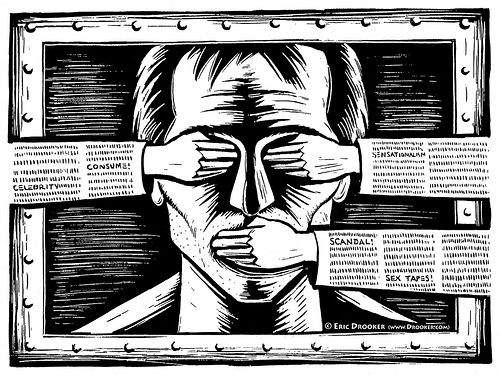
by Kevin Copp ’18
Opinion Staff
The role of the media in the American zeitgeist today is impossible to understate. In the age of information, the news sources and outlets that people return to day after day and year after year have the power to shape the deep sociological ideals that form the basis of our society. Put simply, the media informs virtually everything we know about the world. Consequently it is imperative that the media act responsibly: it must print everything that has been said and provide honest commentaries on the developments that could impact people’s lives.
However, in recent times the media have provided extensive coverage of figures without providing the corresponding context necessary to put these figures in their proper places. Such a lack of context harms the whole of society as the imbalance of coverage over context improperly permits more power to figures who do not deserve or need such power. This improper amount of power almost always leads to harm.
One rather benign example of this imbalance is the ludicrous amount of attention that LaVar Ball, the father of Los Angeles Lakers basketball player Lonzo Ball, receives from the national media. Although Lonzo Ball was an All-American and the second overall pick in the NBA draft last year, his father has stolen much of the media spotlight from him due to a number of absurd comments and claims he has made about his son’s playing ability.
While a few members of the media have derided many of Ball’s ridiculous comments, especially one that claimed Lonzo is better than two-time league MVP Stephen Curry, most of the media have failed to put Ball’s comments in the proper context. The media can report on whatever they choose, the opinions of basketball players’ parents are fair game as long as the media explain the real meaning behind the comments.
In LaVar Ball’s case, the real context of the entire situation is this: He has long made comments to the media knowing any publicity at all will help him advertise his line of $495 shoes, with his son as the number one promotional figure. He knows the media circus created by someone willing to say anything at all will attract shoe nuts and even ordinary viewers to his products. ESPN, Fox Sports, and any other sports media group all need to do the right thing and describe Ball as what he really is: a money-grabbing charlatan. Otherwise, their extensive and over-the-top coverage of Ball puts more money in his pocket—the only thing he really wants.
The greater significance of the media’s refusal to condemn figures like Ball and other attention hogs is that regular people are influenced by these repulsive figures. Other people with great access to the media can say anything just to grab attention, knowing a failure of the media might let them exploit their opportunity and take more power. A crazy, narcissistic businessman might even run for President of the United States. And win.
What the media must do any time a figure attempts to exploit their attention for more power is to be extremely explicit. As Donald Trump secured the Republican nomination, HuffPost ran an editor’s note at the bottom of every story concerning Trump and described him as “a serial liar, rampant xenophobe, racist, misogynist, and birther.” Although a left-leaning publication, HuffPost’s willingness to call the situation as they saw it and to be completely explicit could have helped prevent a Trump presidency had all other major media outlets taken the same initiative. Until mass media starts to do this more often, the men and women in America will be influenced just as much, if not more, by goons like Ball and Trump as they are by people of the highest moral character.
Tangents and Tirades
by The Cowl Editor on October 19, 2017
Opinion

Birth Control Prevents More Than Just Pregnancy
If President Trump intends to prevent “risky sexual behavior,” rolling back birth control coverage is scientifically proven to be one of the worst ways to approach the issue. Regardless of religious views on abortion, forbidding usage of birth control is no better than hindering one’s access to other medications.
The common misunderstanding with birth control is that women use it solely for contraceptive purposes. But the pill has a variety medical purposes that many are unaware of.
When we think of birth control we think of preventing pregnancy, yet the truth is its medicinal abilities extend beyond that of the reproductive cycle.
A study from the National Survey of Family Growth found that while 86 percent of birth control consumers use the pill for pregnancy prevention, 31 percent use it for menstrual pain relief, 28 percent use it for other pain relief such as migraines, 14 percent use it for acne treatment, and four percent use it for endometriosis treatment.
If Trump’s plan is to reduce abortion rates, cutting back on free birth control is not an effective way to do so. Another study in 2012 found that when women received free birth control, the rate of abortion and unplanned pregnancy decreased by a range of 62 to 78 percent.
Not only is the president perpetuating the issue of abortion, but he is robbing millions of women of their right to medical treatment.
-Hannah Paxton ’19
Late Night Madness is Maddening
Late Night Madness has become an event defined by clichés and repetition. Year after year, the same trio of occurrences goes down in Mulaney Gymnasium: dance groups dance, basketball teams play basketball, and rappers rap (and Coach Cooley wears a track suit).
This year, however, the decision of event regulators to separate the traditional concert from the dances and teams’ introductions badly hurt attendance for the pre-concert portion of the night. If the Providence College sports marketing team does not return the event to its previous format, the appeal and enticement of the basketball season kick-off could be lost.
The plethora of empty seats inside the gym during the dancing and introductions of the basketball team demonstrates the significance of the rapper for the fans. In years past, students have packed the arena in the hopes of being able to snag a good spot on the floor to take in a performance from rappers like Big Sean and Ludacris.
This year, however, with the obligation to attend the dances and the basketball portion of the event eliminated, many students decided to skip the festivities many of them might see as less entertaining when compared with a top-name rapper coming to campus.
Indeed, the sports marketing team might have missed the forest for the trees: students just might enjoy a huge concert more than members of their own campus community performing. It would be a big mistake not to change Late Night Madness back to its original arrangement.
-Kevin Copp ’18
Millions Suffer Without Subsidies
Has the horror of Friday the 13th come a day early this year? Last Thursday night, President Donald Trump announced his plan to terminate an essential set of subsidies of the Affordable Care Act. These subsidies, created to help lower-income enrollees pay for their health care, are estimated at $1 billion, and play a critical role in ensuring Americans’ access to essential health care that they would otherwise be unable to afford.
Not only is President Trump disproportionately targeting and jeopardizing the health of some six million of our nation’s most vulnerable citizens, but he is again exemplifying his and the Republican Party’s failure to “repeal and replace” Obamacare.
Picking apart vital elements of the Affordable Care Act, without actually replacing this complex piece of health-care legislation, inserts a virtual ticking time bomb into our health care system.
Without these crucial subsidies, we can expect more health insurers to withdraw from the marketplace for the following year, fewer healthy subscribers enrolling in marketplace plans because of continued premium increases, and consequently older and sicker pools of participants covered under whatever plans remain.
These fatal changes, coupled with Trump’s plan to create less expensive (and less comprehensive) health care plans seem to be a virtual death sentence for the marketplace. Without an actual feasible replacement for the ACA, Trump’s most recent actions are but another example of his unfulfilled political promises, which continue to leave millions of America’s most vulnerable sidelined.
-Sarah Kelley ’18
Hate Is Not a Partisan Issue
by The Cowl Editor on October 5, 2017
Opinion
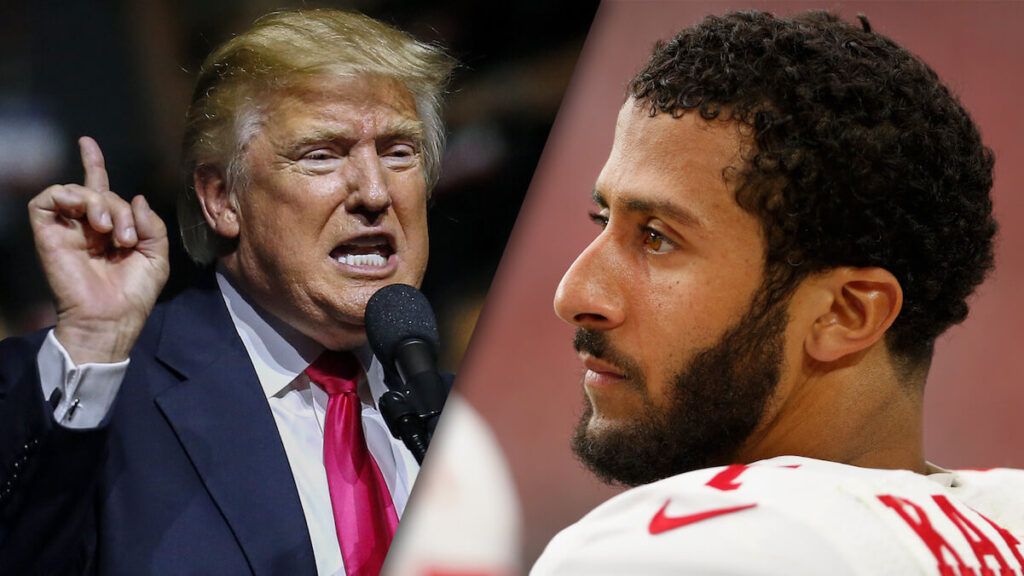
by Kevin Copp ’18
Opinion Staff
Presidential behavior is often controversial. There are questions and discussions about what is acceptable for the commander-in-chief to say and do. Such talking points can arise from issues as large as foreign policy to as small as what color suit the president wears. Yet despite how heated the conversation might become, it is almost always assumed that the president has the best interests of his country in mind. With the ascension of Donald Trump to the presidency and his continual use of divisive rhetoric, such an assumption is no longer valid. The world must firmly acknowledge Trump’s unwillingness to unite America and his determination to promote his own skewed personal agenda.
Trump ran his campaign on lofty promises without specifying the concrete measures he would take to reach his goals. There would be no more crime, no more debt, and no more crooked politicians making a living out of lying to Americans. Trump promised he would drain the swamp and always put America first.
Even after taking office, Trump continued to suggest that he would get rid of all the elements that were dragging America down—too many immigrants, too much healthcare, too much recognition of climate change—and save it from the wayward path it had been traversing.
Although there have been hundreds of clues and hints along the way, the sources of Trump’s motivation are now decidedly clear: his egotism and his desire to see himself celebrated.
Think of the numerous times Trump has attacked the media or a specific news outlet or journalist. It has always come after they have criticized him. And why does Trump continue to applaud Fox News and appear on their shows? Because they are the least critical of him, and Trump thinks this means that they are least likely to turn on him or embarrass him.
When Trump realized the media would not refrain from critiquing him just because of his position, he knew he would need a strategy that would allow him to continue to pump up his accomplishments and minimize his deficiencies. So he continued the technique that brought him into the White House—attacking anyone and everyone who did not conform to his worldview or dared to criticize him. From the mayor of London, after a terrorist attack, to Meryl Streep, and the mayor of San Juan, after a devastating hurricane, to Pope Francis, Trump has spared few from his Twitter rants.
His comments against NFL players who kneel for the national anthem have shown how far he will go to protect his own image. He has chosen to appeal to right wing conservatives by calling NFL players exercising their rights protected by the Constitution “SOBs”. A president who truly cared for the fate of the American people would not admonish and embarrass his citizens for speaking up for themselves. He would try to understand the issue and what these citizens want to change. He would try to be a constructive leader, someone who works to improve society. Trump has demonstrated that this is not his priority.
United we stand, divided we fall. Donald Trump has only accelerated our nation’s leaning, bringing us closer and closer to toppling.
The Fenway Four: Stepping Up and Speaking Out
by The Cowl Editor on September 21, 2017
Opinion
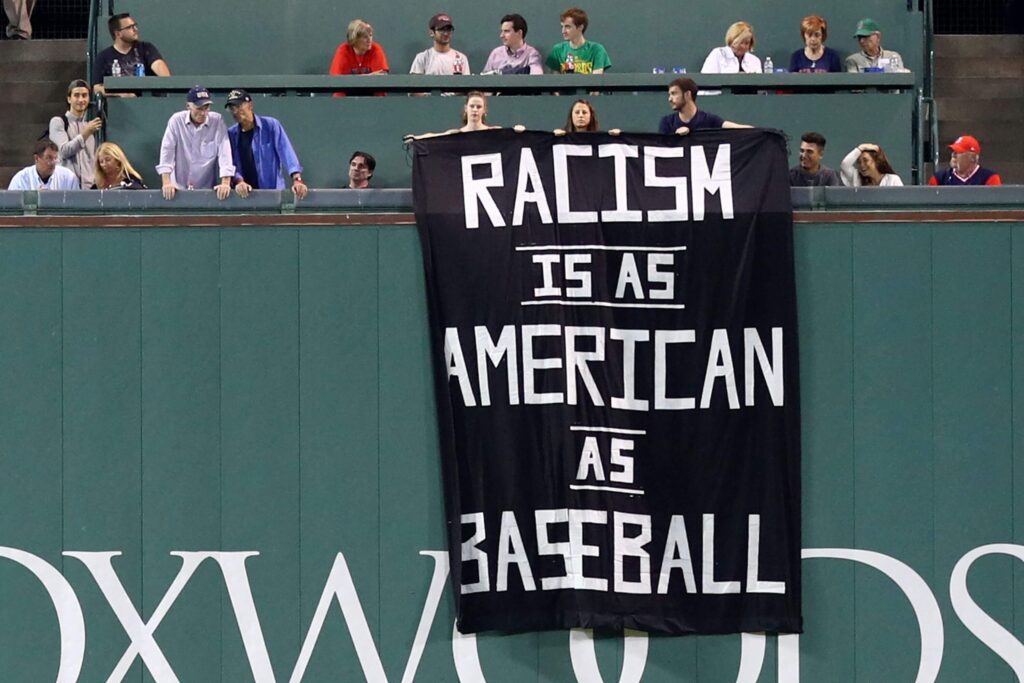
by Kevin Copp ’18
Opinion Staff
The rather shocking appearance of a banner reading “Racism is as American as Baseball” at Fenway Park last Wednesday not only stunned the onlookers at baseball’s oldest ballpark, but also underscored an important message in Trump’s America: the need for constant and effective outspokenness.
Citizens who want their voices to be heard need to speak up over and over again just to give themselves and their ideas the chance to cause change. Any idea given on social media or otherwise also needs to be significantly stimulating to cause a meaningful reaction.
Social media and the age of the Internet have given new meaning to democracy. Every person now has a voice and the opportunity to convey his or her reaction instantly across the world.
This power of freedom of speech, however, gives rise to the problem of reader’s selecting which message to focus on. It is easy for a reader to become numb to the content of a post after having scrolled through hundreds within a single day.
The real issue for a social media critic or protester is crafting a provocative message that still resonates as authentic and honest in an era of fake news.
The Fenway Four, or the four fans who dropped their banner over the Green Monster in the middle of the fourth inning, captured the essence of the perfect message that can gain attention and create discourse.
By using an ambiguous message, they encouraged discussion about what exactly they are trying to say and why they would choose such a venue to display it. When the four protesters explained afterwards that they were trying to “remind everyone that just as baseball is fundamental to American culture and history, so too is racism,” the direction of their opinion became clear.
The confrontational tone of their banner was also enhanced by the fact that Fenway has had its share of racist incidents in the past and that the Red Sox have been one of baseball’s most historically racist franchises.
The Fenway Four had a specific audience in mind and went to a location where their message would be seen and heard by people who would adamantly disagree with them.
Anyone who cares about these kinds of national issues can look to the Fenway Four as a model for social change. They cannot be afraid to be provocative or to make other people angry. They should try to spark a conversation about what really happens in society and how it can be fixed. And they should be authentic, to create an honest connection that can lead to real change.
Such a methodology will definitely grab the attention of the mindless social media scrollers who are tired of three-second videos and fake happy photos.
Being outspoken for any cause will surely require courage and commitment. The Fenway Four were kicked out of the park. Yet, they were entirely successful in their mission to get their message across. Millions of sports fans in and around Boston were exposed to a potentially new idea that racism might be more ingrained in American society than they initially thought.
For anyone who sees a flaw in our world and cares about getting it fixed, this is a fabulous result and one that should inspire increased positive outspokenness.
Tangents and Tirades
by The Cowl Editor on September 14, 2017
Opinion
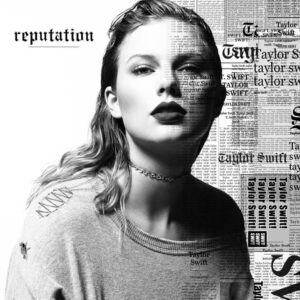
What Did We Make Taylor Do?
It has been virtually impossible to avoid Taylor Swift’s music and personal drama for years and these past few weeks have been no exception. After being infamously targeted by Kim Kardashian West on Snapchat last July, Swift essentially disappeared from the spotlight.
Many wondered how she was going to break her silence to share her side of the story. Her first single, titled “Look What You Made Me Do,” was supposed to do just that. Swift’s new song appears to be her revenge plot against those she feels have damaged her reputation, but sounds more like a parody of songs about retaliation.
After listening to this song for the first time, I was left with questions that have yet to be answered. For example, the chorus makes no sense. Swift simply repeats the phrase “look what you made me do,” but what exactly did she do? Who is she talking to on the phone when she proclaims that “the old Taylor can’t come to the phone right now?” Why does that part of the song even exist?
Swift portraying herself as the victim who intends to exact revenge against her enemies is nothing new. She has been singing about getting back at boyfriends or friends who have wronged her since the beginning of her career.
“Look What You Made Me Do” is a predictable response to her recent portrayal in the media. Did anyone really think Swift was going to release a song called “Kanye and Kim were right, I was wrong?” Sadly, we will have to wait until November to find out if Swift is willing to provide us with any more details of her public feuds. Until then, we can only continue to speculate and wonder what exactly her enemies have made her do, just like she expects us to.
-Bridget Blain ’19
Package Pandemonium
Students walking up from the business school last Monday and heading for a quick lunch at Ray may have found themselves arrested by the sight of a rather copious gathering of humanity outside the mailroom. The line for package pickup stretched out the door, up the steps, and at some points, nearly breached the entrance to the mailbox area. The slow-moving line and the general sense of disorder caused by the influx of packages demonstrates that a new system for student pick-up of packages would save serious time and stress.
Some students, who arrived at peak hours to retrieve their packages, could have counted their wait times at around 45 minutes. Some of these same students waited only to be told that their packages were unable to be located by mailroom staffers. Such are the breaks when there is only one worker to find a package, swipe the student’s ID, and move on to the next customer in a seemingly unending line.
It would be rational for the mailroom to extend its hours during the high-volume periods at the beginning of the semester, when students are flocking to the Internet to order books and dorm room decorations. Perhaps a more rigid scheduling system that ensures student workers will show up would help make the experience of getting a package more endurable. Unless these or other changes are made, students should brace themselves for long delays to get their stuff.
-Kevin Copp ’18
Black Women Matter Too
“Nobody’s free until everybody’s free,” said Fannie Lou Hamer, an activist in the Civil Rights movement. She spoke these words at the Democratic National Convention in 1964, but 53 years later they still ring true.
While some citizens may insist that we have already achieved racial and gender equality as a nation, the fact remains that there is still much more progress to be made.
For decades—centuries even—black women have endured much to garner the same respect and attention to their fight for justice, a cause that is all too familiar to white women of privilege. For the most part, America recognizes women’s struggles. But the struggles black women face are immeasurably overlooked.
As Charlene Carruthers said at the Black Women and Girls Symposium, “We are fighting the same battle today as we were 10 years ago.” The push for justice for black women did not end with the Civil Rights movement, and it certainly will not end with the modern feminist movement.
We cannot talk about equal pay without talking about how black women are paid 63 cents for every dollar white men are paid. We cannot talk about women’s portrayal in the media without talking about the way in which black women are underrepresented.
Feminism that does not include black women is not feminism in its truest and most progressive form.
-Hannah Paxton ’19
Moving Forward: Remove Confederate Statues
by The Cowl Editor on August 31, 2017
Opinion
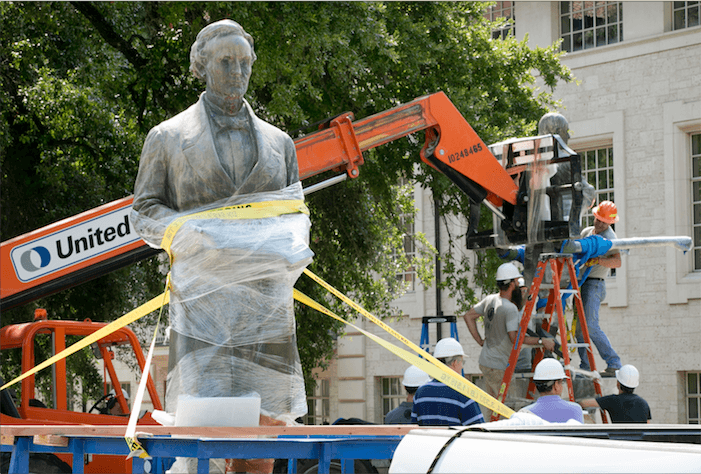
by Kevin Copp ’18
Opinion Staff
The decisions of many cities, states, and universities to remove Confederate statues has polarized America. A stone carving of Robert E. Lee in Charlottesville, for instance, still has significant meaning for people from both the North and the South.
Riots have broken out and lives have been lost because of the relevance that a bust of a general who lost a war over 150 years ago maintains today.
Despite protests from some conservatives who fear that history will be forgotten, the removal of any monument glorifying the Confederacy would enable American society to distance itself from its racist past and better acknowledge the equal acceptance of all its citizens. For that reason, removing Confederate statues can move America forward.
Why do statues of the losers of the Civil War exist in the first place? It is not often that defeated soldiers and leaders receive statues—Germany certainly has no statues of Hitler.
Supporters of the statues suggest they are necessary to remember history and claim that their removal will cause the evil of slavery to be forgotten.
Yet, to continue the German analogy, no statues of Hitler are necessary to remember the wickedness of the Holocaust. Can it be only in America that monuments of those who do evil are necessary to memorialize the evil they have done?
The main reason that so many Confederate statues were erected around the turn of the twentieth century is actually the complete opposite of the remembrance of the evils of slavery.
According to historian Joshua Zeitz, Southern cities, towns, and states erected Confederate statues to mask the real intention of the Confederacy in the war and make slavery appear to be a secondary issue for the South. Confederate statues and monuments were installed to make people forget how important slavery used to be to the Southern ideology and economy.
By creating statues that ostensibly regard the courage of Confederate men who fought for their own honor and pride as well as their states’ rights as opposed to the institution of slavery, Southern leaders have tried to remove the place of slavery from the Civil War and American history.
Their continued existence constitutes a false rewriting of history. Men who fought to protect a system in which human beings were treated wholly unfairly are glorified when they should be admonished.
Only getting rid of every Confederate statue will ensure that the meaning of the Civil War and the evil nature of slavery cannot be misunderstood.
How ironic is it, then, that a great number of the protesters of the removal of the statue of Robert E. Lee in Charlottesville were neo-Nazis and Klansmen? These followers of hatred understand the true value of admiring the Confederacy and those who died for it.
They know the importance a statue has to influence a judgment. They know that little boys and girls from the South will try to emulate people who fought to protect slavery. They know that hiding the slavery of the past can help hide the racism of the present. They know that falsely rewriting history can help them ignore the self-evident truths that all men and women are created equal.
Time To Take A Break
by thecowl.opinion on May 4, 2017
Editorials

by Kevin Copp ’18
The casual observer at Providence College this time of year—when Saturdays at Ray mean boys in mid-nineties era NBA jerseys and girls in flower-print dresses—undoubtedly hears more statements lamenting the busyness of the last two weeks than the rest of the semester combined. Students deplore the papers and exams that they know have been coming all year long, and nearly everyone complains about it.
While being busier at this point in the year might be a virtual guarantee for every student, the amount of references students make to their busyness and the surprise many students have at needing to do a lot of work during finals has become highly cliché.
Of course, it is natural to feel stressed out when you have a lot of work to do, but it is beneficial to remember that everyone else is in the same overloaded boat. Changing your attitude towards the commitment of finals preparations can make them less painful and even, in some rare cases, worthwhile.
The relativity of being busy makes it difficult to see how occupied other people can be. Anyone who has any work to do naturally focuses their energies on getting their own stuff done and tends to minimize the things others must do. The lives of others can even become a fantasy that you might envy when you have so much to do.
You have a ten page paper to write, and your best friend plans on heading to Whiskey’s for the last Thursday of the year. The moment you hear your friend is going to Whiskey’s instead of being cooped up in the library, you want to be them. What you do not know, of course, is that your friend finished a ten pager two nights before.
Everyone has their hectic moments and everyone has to sacrifice something in order to get their work done. Thinking more about the complete picture of the work that other people have to do and not just the fun they get to have can make your own busyness a little easier to manage.
Taking time for yourself is another way to take the edge off all the work that finals require. Although the sheer amount of things you need to do might seem overwhelming, it is still important to take time to do things that are just for yourself.
Taking a short walk, going to the gym, reading for leisure, and getting coffee are all activities that will make preparing for finals easier and put all the work you feel you must do in the proper perspective. Life will go on after finals, no matter how much effort you put in to ace everything.
Most of all, remember to spend time with your friends. Although they definitely have a lot to do as well, they also need to know they are not alone in being busy. Spending time with them proves your priorities are in the correct place and that you value their friendship over a number on a piece of paper.
Even though everyone succumbs to the cliché of being busy in one way or another, it is important to remember that one’s own personal effort is always relative to another’s busyness, and that everyone has about the same amount of work to be done. By keeping this realization in mind, as well taking time for one’s self and one’s friends, expect the burden of finals to be significantly lightened.
Friars Give Day: An Unnecessary Price
by The Cowl Editor on April 6, 2017
Opinion

by Kevin Cops ’18
Opinion Staff
Although the Friars Give day on Tuesday, March 28 may be viewed from an objective perspective as meeting the goals prescribed by the Office of Institutional Development, the constant reminders and badgering of students about donating money in the middle of a busy school week and right before the Relay for Life event seemed like a poor choice of timing.
The blown-up fanfare and the exaggerated importance of student donations made the entire event appear artificial, as simply another strained attempt to milk more money from students and somehow justify added alumni donations.
For all the money that students must spend in order to attend Providence College, the school’s asking for added donations appears tasteless. Students pay enough money through tuition, fees, dorm charges, and meal plans. The school’s looking for extra money from the students shows that they are clearly willing to prioritize the desires of alumni, who get to see their names all over campus, over the financial stability of their students.
Certain alumni’s wishes to only match the amounts raised by students and other participants seem merely like a ploy on the part of the college to get every dollar possible. It is a rather convenient situation for the college when alumni only want to donate money if the students and faculty will also be asked and expected to give a specific amount. The marketing strategy to use the alumni’s donations as motivation for the students adds salt to the wound that is opened when the school asks the people paying $60,000 a year to reach a little deeper into their pockets.
Besides the alumni’s promises as incentives, the school also employed some other intriguing strategies to attempt to convince students to donate. There were donuts in the morning and a vast amount of burritos in the afternoon, followed by chicken fingers and fries later in the evening. A DJ played for a significant portion of the day as well.
Did all that money spent on food and music bring in a large amount of donations, or was it more likely that the cash-strapped and often-hungry college students swarmed to the food without sparing a penny? It does not seem like paying a lot of money to milk a little bit more from students was a well-reasoned decision.
With so much money doled out to accessorize the event, the importance of the money the school said it needed from the students felt seriously diminished. Why spend so much and ask for more when you can just not spend in the first place?
Then there were the emails. Students could count four different emails from the development office reminding them to give money that day. By the time the fourth email was read, many students were tired of being pestered; the whole day had felt like the awkward situation of telling an ex-boyfriend “no” over and over again. Many students were more likely to feel pity when receiving that fourth email rather than an actual desire to walk to Slavin and donate.
The timing of the Friars Give day also clashed severely with Relay for Life, another event that aims to raise money for a worthy cause. With students being as cash-strapped as they are, it is unreasonable to expect that donations to the school three days earlier would not harm the number and size of donations at the Relay event. Schedulers of both events should have coordinated much more closely to ensure that the events would not harm each other.
The first annual Friars Give day seems like a nice event on the surface, but the exaggerated importance of student donations seemed forced and merely another attempt by the College to extract more money out of students.
The annoying emails, emphasis on big alumni donations, and the strange contradiction of vast financial resources being used to support a monetary campaign that will “raise support,” makes one wonder how necessary the event really was for students.
March Madness: Branding Over Talent?
by The Cowl Editor on March 16, 2017
Opinion

by Kevin Copp ’18
Opinion Staff
The excitement created by March Madness is normally unparalleled on many college campuses. At about 5 p.m. on Selection Sunday, every fan begins to dream of his or her team cutting down the nets.
While the tournament is open to teams from 32 different conferences from across the nation that play Division I basketball, the recent trends exhibited by the selection committee that chooses the teams for the tournament has kept many worthy teams in smaller conferences from entering the field.
The selection committee should focus more on picking the worthiest teams from all of the conferences and not merely rewarding bigger schools for playing in so-called major conferences.
There has been a significant shift in the committee’s thinking in the past 10 years. In the 2006 NCAA Tournament, the selection committee chose four teams from the Missouri Valley Conference, a conference made up of less well-known schools but still a largely successful league. That year, two schools from the Valley had highly successful runs to the Sweet Sixteen.
In 2017, however, the committee selected only one team from the Missouri Valley and passed over Illinois State, a deserving team that lost only six games all season. The RPI, an advanced metric that ranks teams based on statistical analysis, pegs Illinois State as the 33rd best team in the country (68 teams make the tournament).
Although the committee’s defense of excluding Illinois State focused on their playing a schedule filled with weak teams, schools like Illinois State have trouble finding good teams to play because the brand-name schools are afraid of losing a game to an opponent without a big name. Thus, schools like Illinois State are stuck playing mediocre competition for most of their season and then must rely solely on receiving the automatic bid to the tournament by being the champion of the Missouri Valley. When this does not happen, like this year, Illinois State is left on the outside looking in.
The biggest reason why mid-major schools like Illinois State have trouble cracking the field is because of the make-up of the committee itself. Members who are athletic directors from the major conferences have a financial incentive to reward teams from their own conferences. For example, committee chair Mark Hollis of Michigan State University has a bias to ensure as many teams from the Big Ten Conference enter the tournament because of increased exposure for the league and additional revenue down the line as a result of that exposure.
When the committee is only made up of 10 members, teams like Illinois State that do not have a representative from their conference on the committee lose the same opportunity that other schools have. Teams that have an average standing in their conference but have played enough difficult teams receive bids to the tournament often because the toss-up between two teams will always go to the more financially-viable option.
The nature of selection to the NCAA Tournament has become much more exclusive. Big-name schools that play in conferences with exorbitant TV deals often get bids because of the financial benefits for their conference and are rewarded for avoiding playing good teams from outside of the major conferences.
The selection committee needs to focus on selecting worthy at-large teams from mid-major conferences, or else the days of seeing teams like George Mason, Wichita State, and Butler make runs to the Final Four will soon be over.
Racism Is Now In Session(s)
by The Cowl Editor on February 16, 2017
Opinion

by Kevin Copp ’18
Opinion Staff
For all of the unqualified and unprepared members of President Donald Trump’s new cabinet, the appointment of Jeff Sessions as the new attorney general represents the greatest threat to the democracy that so many people have fought to uphold.
As the head of the Department of Justice, Sessions will be in charge of preventing crime and terrorism within the United States and ensuring that all those who break the law are prosecuted.
For American citizens who care about equality and justice, the two national virtues that Sessions is now obliged to uphold, the appointment of a bigoted racist and a staunch conservative who believes in the elimination of many civil rights acts should create an enormous angst about the future of all minority Americans.
Trump’s decision to appoint Sessions extends his growing lack of concern for issues such as the treatment of the LGBTQ community and civil rights. Just as Trump removed the LGBTQ rights page from the website hours into his presidency, his choice of Sessions as the new attorney general shows how little respect members of the LGBTQ community will receive during the Trump presidency.
During his last complete Senate term, from early 2015 to early 2017, Sessions received a rating of zero from the Human Rights Campaign, which measures how Senators vote on amendments and acts that would improve the rights of LGBTQ Americans. From this rating, it is clear how little concern Sessions has for protecting the rights of a huge segment of the American population.
Now that he is in charge of deciding much of what is considered “right,” it will be frightening to see how Sessions will manipulate his power to continue to oppose the LGBTQ community.
His controversial stances on race also presage the coming difficulties American minorities will face. Sessions has commented that he thought the KKK was okay until he heard they smoked marijuana, and he has been accused of calling a black assistant attorney “boy” and telling the man to be careful how he talks to “white folks.” He has also been alleged to have called the NAACP “un-American.”
Although he denies the latter claims and says that his KKK comment was a joke, the simple abundance of the swirling controversies that follow Sessions should be sufficient to make a rationally-minded American uncomfortable. How does it make sense to have someone who has been reproached for so many racial remarks at the head of the organization that determines what justice is in this country?
A man who has already been denied a federal judgeship and who possesses a history filled with such rampant racial insensitivity can only steer America back to the path of discriminatory voter laws. This bodes negatively for the south, where many minority citizens already deal with laws that make it difficult for them to register to vote. This pushes America backwards and threatens the existence of democracy itself.
If Sessions is able to push his agenda across and prevent many minorities from voting, who knows if there will be enough people who prioritize equality that are able to vote to prevent an authoritarian from winning his second term in office?
